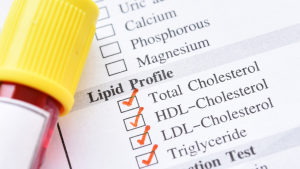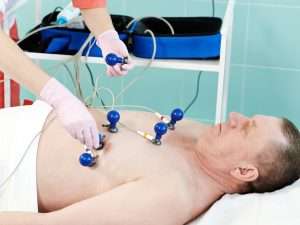Understanding the Role of Diet in POTS Management
Postural Orthostatic Tachycardia Syndrome (POTS) is a form of dysautonomia that affects blood circulation, leading to symptoms such as dizziness, fatigue, brain fog, and tachycardia upon standing. While medications and lifestyle modifications are integral to POTS management, diet, and nutrition play a critical role in stabilizing blood pressure, maintaining hydration, and supporting autonomic function.
Importance of a POTS-Specific Diet
A well-structured diet can help increase blood volume, regulate blood pressure, and reduce symptom severity. Key dietary considerations for POTS management include:
- Hydration: Adequate fluid intake helps maintain blood volume and reduce orthostatic intolerance.
- Electrolyte Balance: Sufficient sodium and potassium intake supports blood pressure regulation and prevents dizziness.
- Nutrient-Rich Foods: Essential vitamins and minerals contribute to nervous system function and energy levels.
Best Nutritional Strategies for POTS Management
1. Stay Hydrated
Dehydration can worsen POTS symptoms. Patients should aim to drink 2-3 liters of fluids daily, including water, electrolyte-rich beverages, and broth-based soups. Oral rehydration solutions or drinks containing sodium, potassium, and magnesium may also be beneficial.
2. Increase Sodium Intake
Sodium helps retain fluid, expand blood volume, and improve circulation. Most POTS patients require 3,000–10,000 mg of sodium per day, depending on individual needs and medical guidance. Sources include:
- Salted broths or soups
- Electrolyte drinks
- Salt tablets (as prescribed by a physician)
3. Eat Small, Frequent Meals
Large meals can divert blood flow to the digestive system, exacerbating symptoms such as dizziness and fatigue. Instead, eating smaller meals every 3-4 hours can help maintain stable blood pressure.
4. Focus on Nutrient-Dense Foods
Nutritional deficiencies can contribute to fatigue and autonomic dysfunction. Recommended foods include:
- Lean proteins (chicken, fish, tofu) to support muscle function and prevent blood sugar crashes.
- Complex carbohydrates (quinoa, whole oats, sweet potatoes) for sustained energy.
- Leafy greens (spinach, kale) rich in iron and magnesium for blood circulation and nerve function.
- Healthy fats (avocados, nuts, olive oil) to support brain health and inflammation control.
5. Foods to Limit or Avoid
Certain foods may trigger POTS symptoms and should be consumed with caution:
- Highly processed foods (fast food, packaged snacks) that contain artificial additives and unhealthy fats.
- Refined sugars (sodas, pastries) that cause rapid blood sugar fluctuations.
- Alcohol which can lead to dehydration and worsen blood pressure instability.
- Caffeine that may cause increased heart rate and fluid loss in some individuals.
Seeking Expert Care for POTS Nutrition
Managing POTS through diet requires personalized guidance. At The Heartbeat Clinic, our specialists provide comprehensive assessments and customized nutritional plans to help optimize symptom management.
How a POTS Specialist Can Help:
- Personalized dietary recommendations based on individual symptoms.
- Advanced testing to assess hydration and electrolyte balance.
- Ongoing monitoring to track progress and adjust treatment as needed.
Conclusion
A tailored diet is crucial for POTS management, helping to stabilize blood pressure, improve hydration, and support autonomic function. By increasing fluid and sodium intake, eating nutrient-dense foods, and avoiding triggers, you can better control symptoms and enhance your well-being.
For expert guidance, The Heartbeat Clinic offers specialized care and customized treatment plans to help you manage POTS effectively.
Book an appointment today—Contact Us for personalized nutritional and medical support!
Frequently Asked Questions (FAQs)
- Can diet help manage POTS symptoms?
Yes, a well-balanced diet with adequate hydration and electrolyte intake can help stabilize blood volume and improve symptoms. - How much sodium should a POTS patient consume daily?
Depending on medical guidance, most patients require between 3,000–10,000 mg of sodium per day. - What foods should be avoided with POTS?
Processed foods, refined sugars, alcohol, and excessive caffeine should be limited. - Why is hydration important for POTS patients?
Proper hydration helps maintain stable blood pressure and reduce orthostatic intolerance. - Can POTS be managed with diet alone?
While diet is a crucial part of POTS management, it is best combined with medical treatment and lifestyle modifications. - Where can I find a POTS specialist?
Heartbeat Clinic McKinney has specialists who offer comprehensive POTS treatment plans. - Does caffeine worsen POTS symptoms?
Caffeine may cause dehydration and heart rate fluctuations, which can exacerbate symptoms in some individuals. - What are the best drinks for POTS patients?
Electrolyte-rich drinks, coconut water, and high-sodium broths are recommended. - Should POTS patients take supplements?
Some individuals may benefit from magnesium, B vitamins, or iron supplements, but a physician should be consulted first. - How can I schedule an appointment with a POTS specialist?
You can contact The Heartbeat Clinic to schedule a consultation and receive expert guidance on POTS nutrition and treatment.
Disclaimer
This content is for informational purposes only and does not replace professional medical advice. Always consult a healthcare provider before making dietary or treatment decisions.






